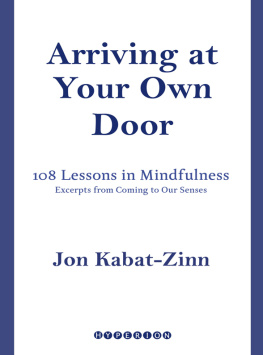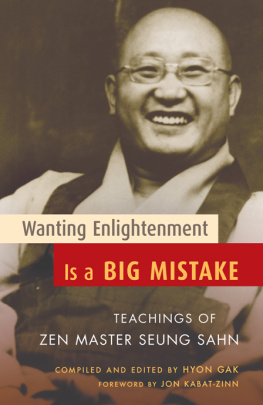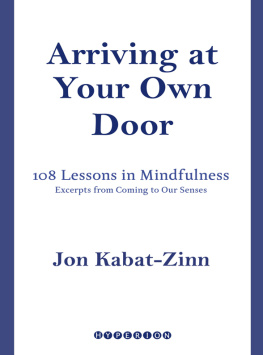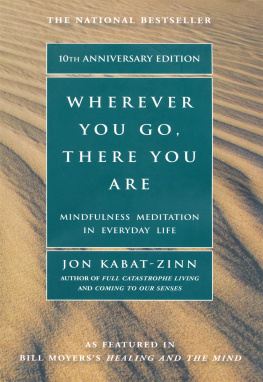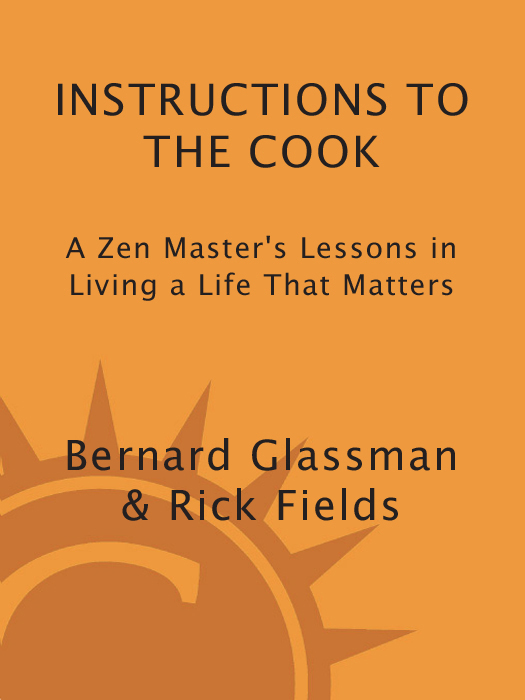
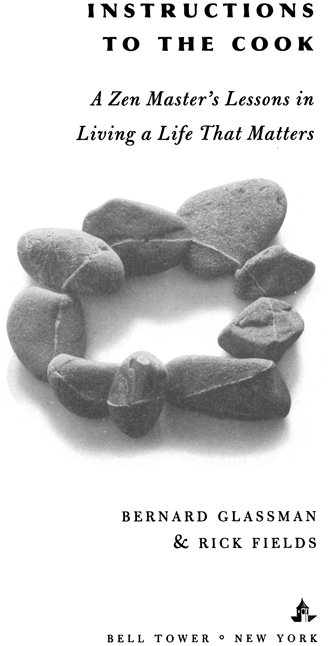
Taking the Path of Zen and Zen Mind, Beginners Mind have introduced scores of Americans to Zen Buddhism in the last two decades. Now, these two mini-classics are joined by a new book that promises to be an even more meaningful introduction Zenas well as the growing socially engaged Buddhism movement.
Donn Fry, Seattle Times
A delicious confection made of down-to-earth Zen wisdom and a deeply heartful demonstration of compassion in action.
Ram Dass
Instructions is stimulating and insightful precisely because it is so well grounded in the fundamental teachings of Dogen Zenji and othersexceptionally practical teachings, morever, which chart a course for the development of that social-action Zen (led most forcefully by Roshi Glassman) which promises to become the Way of Zen here in America.
Peter Matthiessen
A recipe for an enlightened life, Instructions to the Cook speaks volumes about finding nourishment in a voracious world, where so many thingsfrom consumerism to unemploymentcan create hunger, and where contentment can seem tantalizingly remote, an aroma from someone elses window.
Deborah Jerome-Cohen, New York Daily News
A more authentic teaching by a more authentic person than Bernard Glassman, we are not likely to see in our times. He not only teaches all this, he has done it all.
Thomas Berry
I dedicate this book to my teacher, Hakuyu Taizan Maezumi Roshi, who died on May 14, 1995, at the early age of 64. Maezumi Roshi was the father of our family lineage in this country and Europe and a master Zen chef. I wish to offer him the following vows:
Playing freely in self-fulfilling and
other-fulfilling samadhi,
I vow to maintain and nourish
the One Buddha Mind Seal.
Life after life, birth after birth,
practicing diligendy,
I vow to never let die the wisdom seed
of the buddhas and ancestors.
Truly! I vow this to you.
In deep gratitude,
Bernard Tetsugen Glassman
Prologue: Preparing the Menu
THE MENU
A deep bow to all the inhabitants of the Greyston Mandala, especially the pioneering residents of 68 Warburton, the staff of the Greyston Bakery, and the members of the Zen Community of New York, for their courage and dedication to working with the rejected parts of society and self in all the ten directions.
Our deepest acknowledgment is to Zen Master Dogen and his Tenzo Kyokun (Instructions for the Zen Cook), which inspired us. The translation we have referred to appears in From a Zen Kitchen: Refining Your Life, by Zen Master Dogen and Kosho Uchiyama, translated by Thomas Wright (John Weatherhill, New York and Tokyo, 1983).
PROLOGUE
PREPARING THE MENU
When I first began to study Zen, my teacher gave me a koan, a Zen question, to answer: How do you go further from the top of a hundred-foot pole?
You cant use your rational mind to answer this koanor any Zen questionin a logical way.
You might meditate a long time and come back to the Zen master and say, The answer is to live fully.
Thats a good beginning. But its only the rational, logical part of the answer. You have to go further. You have to demonstrate the answer. You have to embody the answer. You have to show the Zen master how you live fully in the moment. You have to manifest the answer in your lifein your everyday relationships, in the marketplace, at work, as well as in the temple or meditation hall.
When we live our life fully, our life becomes what Zen Buddhists call the supreme meal.
We make this supreme meal by using the ingredients at hand to make the best meal possible, and then by offering it.
This book is about how to cook the supreme meal of your life.
This book is about how to step off the hundred-foot pole.
This book is about how to live fully in the marketplace.
And in every other sphere of your life.
Most people come to see me in my capacity as a Zen teacher because they feel that something is missing in their lives. You might even say that most people come to Zen because they are hungry in some way.
Maybe they are successful in business but feel that they have neglected the deeper, more spiritual aspects of life. These people come to Zen to find meaning. Other people have devoted so much time to their own spiritual search that they end up having neglected their livelihoods. These people come to Zen to get their life together.
Then there are people who want to practice Zen for health reasons. They find the posture and breathing that accompany Zen meditation especially helpful. The regular practice of Zen meditation, for example, lowers blood pressure and improves circulation. The lungs function better, so that you can breathe more deeply and powerfully.
Other people are drawn to Zen for self-improvement. They come to Zen because they want to accomplish more or become better people.
Finally, of course, there are people who practice Zen for spiritual reasons. These people want to experience satori or kensho. Satori literally means awakening, and kensho literally means seeing into our true nature. This seeing is done not with our eyes but with our whole body and mind.
All these reasons are valid. Zen can help you restore balance to your life. Zen can be beneficial for your health. Zen can help you sift through your own priorities, so you can get more done.
Zen can also improve your psychological health. The practice of Zen doesnt eliminate conflict and strife, but it does help put our problems in perspective. Zen practice gives stability, so that when we get knocked over, when something unexpected sends us reeling, we bounce back and recover our balance faster.
The practice of Zen can help us in many other ways as well. It can give us an experience of inner peace; it can strengthen our concentration. It can help us learn how to let go of our preconceptions and biases. It can teach us ways to work more. These are all beneficial effectsbut in a sense, they are still all side effects.
At its deepest, most basic level, Zenor any spiritual path, for that matteris much more than a list of what we can get from it. In fact, Zen is the realization of the oneness of life in all its aspects. Its not just the pure or spiritual part of life: its the whole thing. Its flowers, mountains, rivers, streams, and the inner city and homeless children on Forty-second Street. Its the empty sky and the cloudy sky and the smoggy sky, too. Its the pigeon flying in the empty sky, the pigeon shitting in the empty sky, and walking through the pigeon droppings on the sidewalk. Its the rose growing in the garden, the cut rose shining in the vase in the living room, the garbage where we throw away the rose, and the compost where we throw away the garbage.
Zen is lifeour life. Its coming to the realization that all things are nothing but expressions of myself. And myself is nothing but the full expression of all things. Its a life without limits.
There are many different metaphors for such a life. But the one that I have found the most useful, and the most meaningful, comes from the kitchen. Zen masters call a life that is lived fully and completely, with nothing held back, the supreme meal. And a person who lives such a lifea person who knows how to plan, cook, appreciate, serve, and offer the supreme meal of life, is called a Zen cook.


